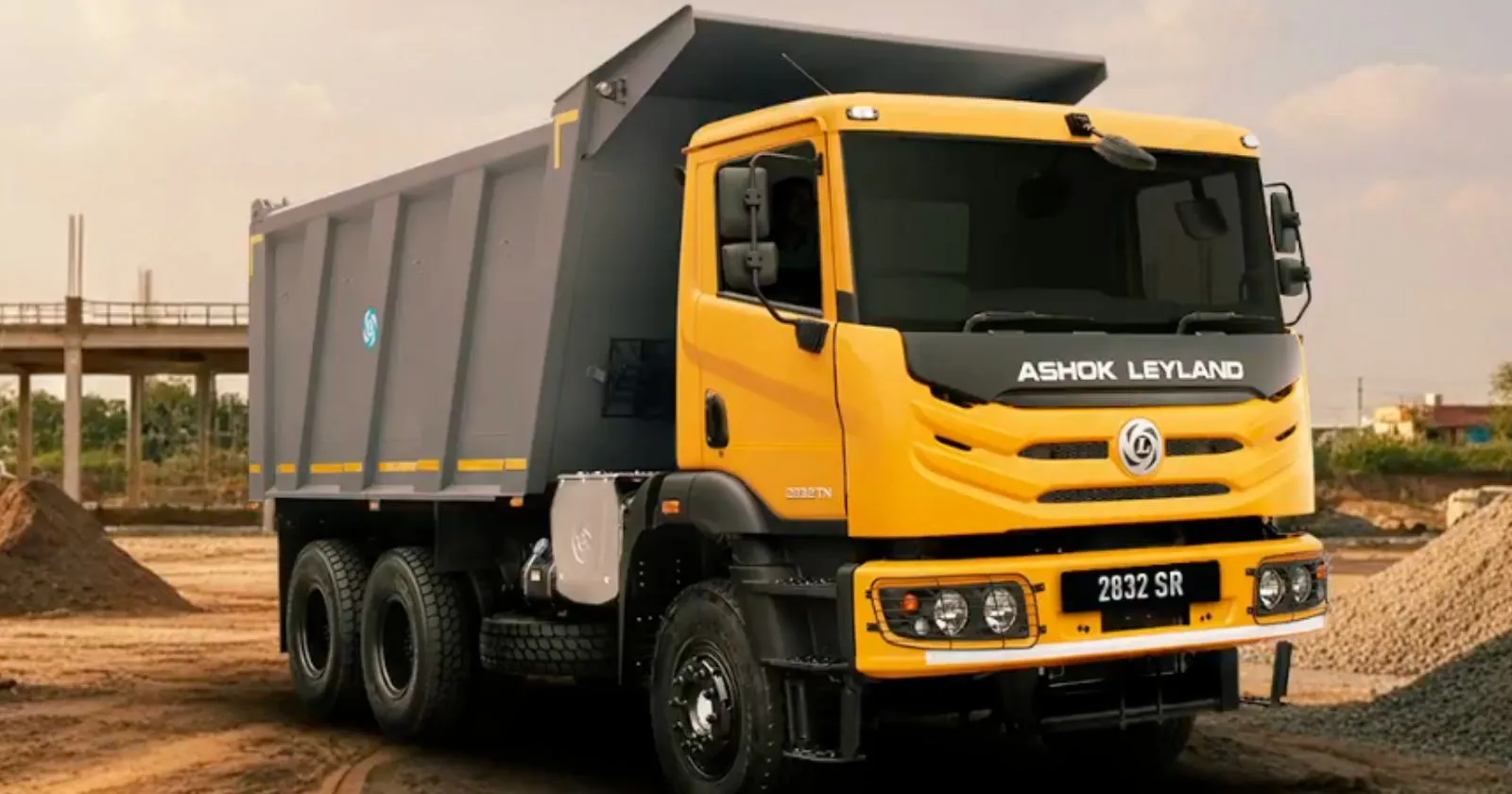
CV sales in India hit a record of 1,007,319 units during the 2018-19 period which is before the 2020 pandemic.

Share Post

CV sales in India hit a record of 1,007,319 units during the 2018-19 period which is before the 2020 pandemic.
The commercial vehicle (CV) industry is poised for a turnaround as the recent GST revision has created the stir for market recovery, a key Ashok Leyland executive told ACKO Drive at the 65th annual convention of the Society of Indian Automobile Manufacturers (SIAM). He added that the sector could witness its strongest performance in years and reach pre-Covid levels, driven by both direct price benefits and indirect demand stimulation.
Notably, according to data from SIAM, CV sales in India hit a record of 1,007,319 units during the 2018-19 period which is before the 2020 pandemic.
"I think, you know, CV actually the biggest beneficiary among the automobile sector. So one, you know, everybody looks at GST in the price cut and they think once it is cut, people will come out and they will buy more, or people who are hesitating, they will come and buy. People who have held back on their plans, maybe they'll get more motivation to come out and buy. And this is true for CVs also," Shenu Agarwal, Managing Director and CEO, Ashok Leyland, told ACKO Drive in New Delhi.
What sets the current GST reform apart from previous price-based interventions is its comprehensive nature, the top executive explained. Unlike sector-specific incentives, these tax cuts create a broader economic stimulus that benefits commercial vehicles through multiple channels.
"The other thing which actually encourages me more than just the price cut is that this GST reform is not limited to series. It is touching every consumer in the country. It is touching every business in the country. It is touching every sector in the country. And therefore, like we are all thinking, this will result in a boost in consumption, then directly it will result in boost in the freight, traffic that will come in the time. So on one side, what you are doing is lowering the cost. On the other side, you are creating a demand of the end use of the truck. Right, for which truck is getting to useful," the Askok Leyland MD explained.
This dual benefit mechanism separates commercial vehicles from passenger vehicles, creating advantages for the trucking sector.
The ultimate success metric for the industry is achieving pre-pandemic performance levels. With the recent GST 2.0, there's growing confidence about reaching historical benchmarks across all commercial vehicle categories.
"If everything goes well, this year's total sales should surpass that of 2019. At the overall level. This also includes LCVs," said an optimistic Agarwal.
This recovery would mark a key milestone for the commercial vehicle industry, signaling not just a return to normalcy but the beginning of a new growth phase, driven by policy reforms and economic strength.
Despite the positive catalysts, he maintained realistic expectations about growth timelines and market response patterns. The CV sector's inherently rational approach to purchasing decisions is about careful analysis rather than emotional responses.
"So as soon as I say this, I know I have to quantify it. But it is very difficult to quantify. I think you have to watch until end of October-November, because a lot of factors are in play, our industry is very complex. Our industry works on pure rational rather than sentiments. So once the rain stops, once people start coming out, we have this additional complexity of retail customer versus fleet-owner, etc," he further added.
"But definitely we will give you a much better forecast when we have clarity."
Current growth projections remain grounded in market realities, with expectations set at sustainable levels rather than speculative highs. The industry's focus on rational decision-making processes continues to shape realistic growth scenarios.
"The industry was expecting about mid-single digit growth for MHCV sector. I don't think it will be double-digit growth. Our industry works on rationale and not sentiments. It is a revenue generator. Truck is not cheap. People take time to make that decision," explained Agarwal.
The retail segment, representing a significant portion of the commercial vehicle market, stands to gain immediately from the GST reductions. This segment's responsiveness to price changes is likely to drive initial market momentum.
"I see a lot of thrust, especially on the retail side which is 50 per cent-60 per cent of the market. Retail customers will directly get benefit from the market," he noted.
Nembharat App Announced with Zero Commission Model for Drivers
Acko Drive Team 23 Feb, 2026, 12:10 PM IST
Automakers Pursue Eyes-Off Driving Systems Amid Debate on Viability
Acko Drive Team 23 Feb, 2026, 12:06 PM IST
Mumbai to Get Unified Public Transport Services Across Rail, Metro, Bus, Taxi Networks
Acko Drive Team 23 Feb, 2026, 10:42 AM IST
New MG Plug-In Hybrid SUV Spotted In India For First Time
Acko Drive Team 23 Feb, 2026, 10:35 AM IST
Omega Seiki Files Patent for E-Rickshaw with Air Conditioner
Acko Drive Team 23 Feb, 2026, 8:02 AM IST
Looking for a new car?
We promise the best car deals and earliest delivery!
